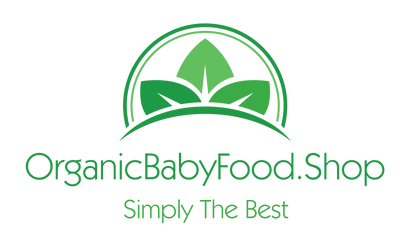
Baby's first formula - A begginers guide to baby formula
Uh oh... the time has come in your baby's life to switch from breast milk to baby formula, and that can be exciting but also overwhelming.
What is the best baby formula to start with? Cow milk, goat milk or soy? Will it be easy on my baby’s tummy? What if my baby doesn't like it, can I switch to another brand? How do I know if my baby tolerates the formula?
So many important questions… and we might not have all the answers to all of your doubts but we have been there and are happy to share our experience with you.
When to switch from breast milk to baby formula?
It depends! There are some mommies that cannot or choose not to breastfeed at all and rely on formulas from day one, others choose to combine both breastmilk and formula and some start introducing formulas to their babies starting at 4-6 months.
Many experts agree that breast milk is enough for a healthy baby for the first 6 months of life as it has everything a baby needs for a healthy growth. It is important to give an iron-fortified formula if you wean your baby before 12 months of age. Whatever your situation might be it is essential to always ask your pediatrician for advice first.
How do I know my baby is ready to start eating formula?
It is generally better to wait until your baby is at least 3 months old (unless your doctor advises otherwise).
Signs to look for to see if your baby is ready to try formula or solid foods are: showing an interest in foods this can include watching others eat, reach for food and even opening their mouth. It is important to see if the baby has the oral motor skills needed to eat, such as not pushing food out of the mouth but move it towards the throat and being able to swallow it.
What is the best baby first baby formula?
Traditionally a single grain, iron-fortified cereal is a good choice to start feeding your baby a formula. Holles Organic Rice Porridge is among our favorites.
At this stage, and if possible, ideally you should feed your baby the formula after a bottle of breastmilk. Introduce other baby food formulas slowly, always waiting a few days to ensure your baby digests and tolerates the formulas properly. Should you see an allergic reaction in your baby's, such as rash, stomach cramps, extreme gas, vomiting or diarrhea, do not continue feeding the formula and consult your pediatrician.
How much and how often should I feed my baby formula?
This depends on the age and weight of your baby, you might want to ask your doctor for specifics, but generally speaking, a 4-month-old baby that has been introduced to formula will consume up to 8 ounces of liquid food between 3-4 times daily.
How do I prepare formulas?
First, make sure you wash your hands and work on a clean chemical free surface. Then read the instructions on your baby formula and measure and pour the desired amount of water into the baby bottle. Follow the formula instructions and add unpacked, level scoops of powder to the bottle as directed and make sure you dry the scoop before returning it to the box. Shake the bottle and feed immediately.
Have more questions? Feel free to contact us any time!
Leave a comment
Comments will be approved before showing up.
Also in Organic Baby Food Shop Blog

Troubles With Latching

Breast vs Bottle: How to Navigate Guilt Surrounding Feeding Choices

Differences Between Holle Pre Formula & Holle Stage 1
Being able to compare and contrast the differences between various organic baby formulas is key for finding the one that is right for your baby. Taking into consideration your baby’s developmental needs, along with the nutrient contents in a specific formula, is a great place to start! If you are trying to decide specifically whether the European Holle Pre Formula or Holle Stage 1 would be best suited for your baby, here are some points to consider.
